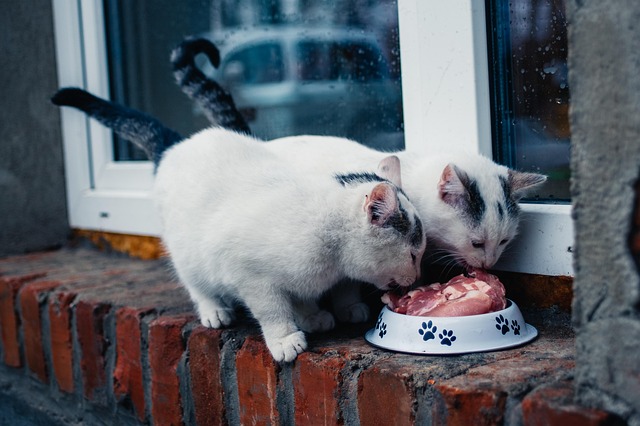
Safe Human Foods Cats Can Eat (and What to Avoid!)
Many cat owners enjoy sharing snacks with their pets, but not all human foods are safe for cats to eat. While it can be tempting to give your feline friend a bite from your plate, it’s important to know which foods are safe and which can be dangerous. Cats have different digestive systems than humans, and even a small amount of the wrong food can lead to health issues ranging from stomach upset to serious toxicity. Understanding the difference between safe and unsafe foods is essential for keeping your cat healthy and avoiding unnecessary trips to the vet.
There are some human foods that are not only safe for cats but can even be healthy when given in small amounts. Cooked meats such as plain chicken, turkey, and lean beef are excellent sources of protein. They should be served without any seasoning, oil, garlic, or onion, as these ingredients are harmful to cats. Small pieces of cooked fish like salmon can also be beneficial due to the omega-3 fatty acids, which support a healthy coat and skin. Eggs, when cooked thoroughly, are another safe treat that provides a protein boost. Occasional bites of fruits like melon, blueberries, or banana may also be offered, although cats don’t usually crave sweets and may show little interest.
Plain cooked rice or pumpkin can be helpful for cats with mild digestive issues. Pumpkin, in particular, is often recommended by vets to ease constipation or diarrhea, thanks to its fiber content. A few plain, unsalted green beans or peas can be offered as a crunchy snack, especially for overweight cats needing low-calorie options. Always serve human foods in moderation and only as occasional treats, not as a replacement for a balanced cat food diet.
On the other hand, some common foods that are safe for humans can be toxic or fatal to cats. Foods like chocolate, caffeine, alcohol, onions, garlic, grapes, and raisins are all extremely harmful to cats, even in small amounts. Dairy products such as milk and cheese are often assumed to be safe, but many cats are lactose intolerant and may experience stomach upset or diarrhea after consuming them. Foods containing artificial sweeteners like xylitol are also dangerous and should be kept far away from cats.
Processed or heavily seasoned foods, fatty meats, and anything spicy should always be avoided. Cats’ bodies are not designed to handle complex human ingredients, preservatives, or sauces. Additionally, bones — especially cooked ones — should never be given to cats, as they can splinter and cause choking or internal injury. It’s also wise to avoid feeding raw fish or raw eggs, which can carry bacteria like salmonella or lead to nutrient imbalances if given regularly.
If you’re ever unsure about a specific food, it’s best to consult your veterinarian before offering it to your cat. Monitoring your cat after trying a new food is also important; look for signs of vomiting, diarrhea, or behavioral changes that may indicate a reaction. Safe feeding practices not only protect your cat’s health but also strengthen the bond between you and your pet by building trust and comfort.
While sharing food with your cat can be enjoyable, it must be done with care and knowledge. By sticking to known safe options and avoiding the risky ones, you can provide your cat with occasional human treats that are both delicious and safe. Responsible feeding ensures a longer, healthier life for your feline companion.
